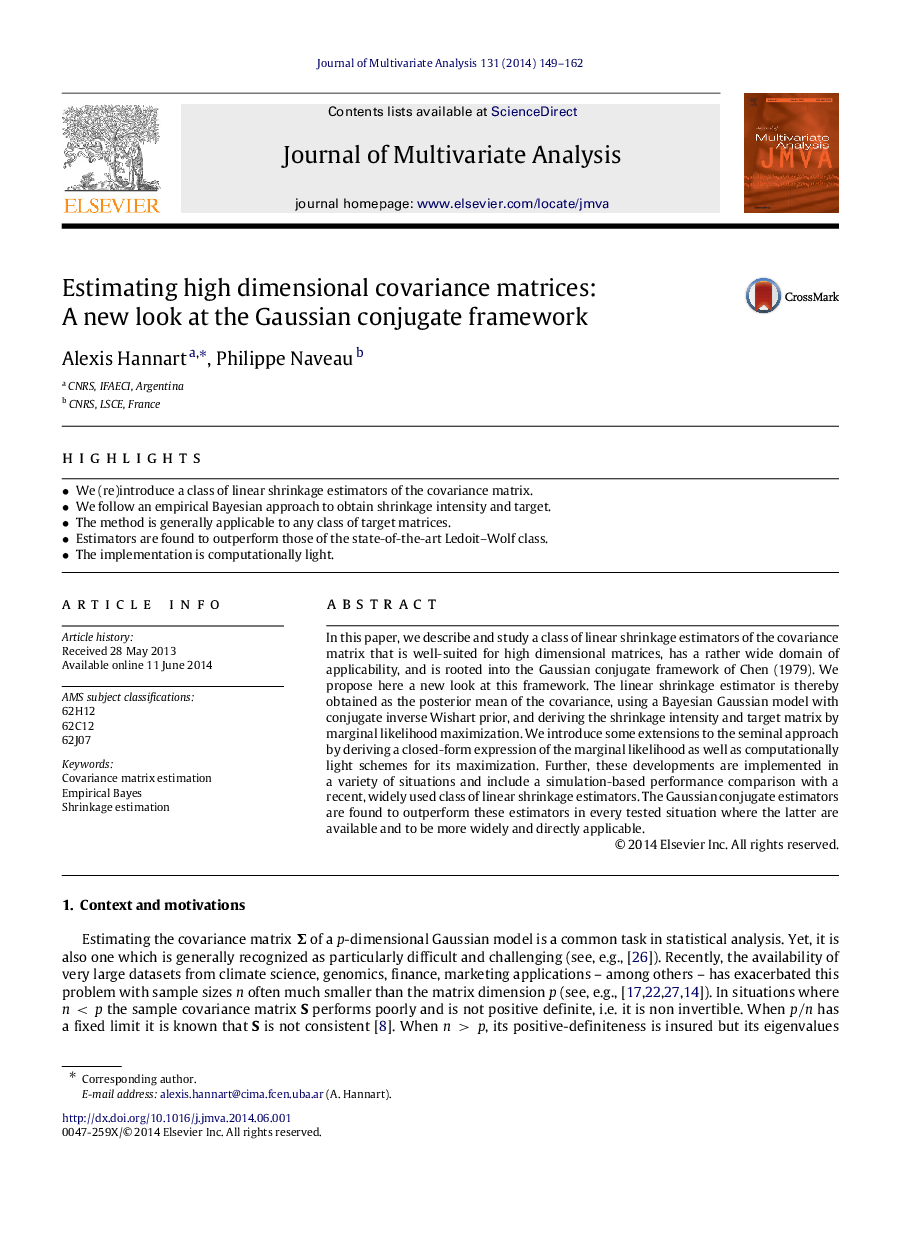| Article ID | Journal | Published Year | Pages | File Type |
|---|---|---|---|---|
| 1145528 | Journal of Multivariate Analysis | 2014 | 14 Pages |
•We (re)introduce a class of linear shrinkage estimators of the covariance matrix.•We follow an empirical Bayesian approach to obtain shrinkage intensity and target.•The method is generally applicable to any class of target matrices.•Estimators are found to outperform those of the state-of-the-art Ledoit–Wolf class.•The implementation is computationally light.
In this paper, we describe and study a class of linear shrinkage estimators of the covariance matrix that is well-suited for high dimensional matrices, has a rather wide domain of applicability, and is rooted into the Gaussian conjugate framework of Chen (1979). We propose here a new look at this framework. The linear shrinkage estimator is thereby obtained as the posterior mean of the covariance, using a Bayesian Gaussian model with conjugate inverse Wishart prior, and deriving the shrinkage intensity and target matrix by marginal likelihood maximization. We introduce some extensions to the seminal approach by deriving a closed-form expression of the marginal likelihood as well as computationally light schemes for its maximization. Further, these developments are implemented in a variety of situations and include a simulation-based performance comparison with a recent, widely used class of linear shrinkage estimators. The Gaussian conjugate estimators are found to outperform these estimators in every tested situation where the latter are available and to be more widely and directly applicable.
